Xi's village visit reflects new focus on rural vitalization
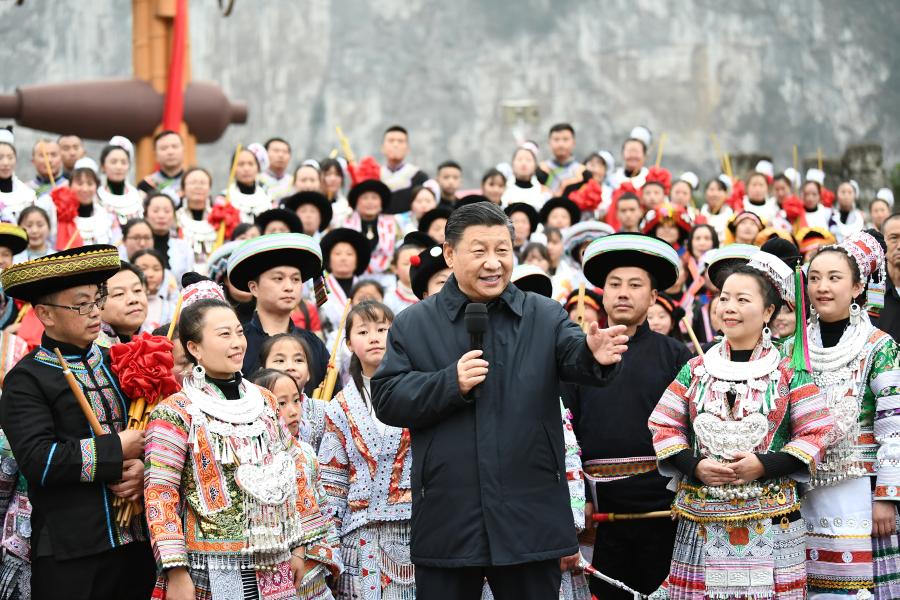
Chinese President Xi Jinping, also general secretary of the Communist Party of China Central Committee and chairman of the Central Military Commission, talks to villagers who are participating in festive activities, and extends his New Year's greetings to people of all ethnic groups across the country, on a public square of Huawu village, Xinren Miao Township of Qianxi county, Bijie, southwest China's Guizhou province, Feb. 3, 2021. Xi on Wednesday inspected southwest China's Guizhou province ahead of the Spring Festival, or the Chinese Lunar New Year. (Xinhua/Xie Huanchi)
Visiting poor villages has been a key part of Xi Jinping's more than 80 domestic inspections since he was elected general secretary of the Communist Party of China (CPC) Central Committee in late 2012.
His tour in the less-developed Guizhou province this week, however, signals a change.
As the country has gained a decisive victory in ending absolute poverty, the focus of work concerning agriculture, rural areas and farmers has shifted to promoting rural vitalization.
A priority is to consolidate poverty relief achievements. The more difficult it is for a region to shake off poverty, the greater the need to consolidate and expand its poverty eradication results.
By choosing Guizhou, home to the last nine counties removed from the country's poverty list, Xi wanted to see in person the living conditions of those who had shaken off poverty, and promote steady progress in rural vitalization.
He went to Huawu village in Qianxi county that was once reeling under extreme poverty but has received support to develop rural industries and tourism.
Xi visited a Miao embroidery workshop there, giving thumbs up to its role in promoting rural vitalization.
He joined the family of Zhao Yuxue in Huawu village to make a traditional snack for festivals and wished the family "a happier and sweeter life."
As Xi has pointed out on various occasions, rural vitalization involves work in the following aspects:
- rural industries must be bolstered to turn farming into promising work;
- favorable conditions must be created for those who choose to stay in the countryside;
- cultural activities must be enriched;
- the environment and ecology must be good and village-level organizations should be full of vigor.
The message of shifting the focus in work concerning agriculture, rural areas and farmers has become clear over time.
A key session of the 19th CPC Central Committee last October called for efforts in consolidating achievements secured in poverty eradication and fully promoting the strategy of rural vitalization.
At the annual central rural work conference held in last December, Xi stressed that China should push forward rural vitalization in an all-round way as "a historic shift" in the focus of its work concerning agriculture, rural areas and farmers.
The year 2021 marks the start of China's 14th five-year plan for economic and social development and its new journey toward fully building a modern socialist country.
In that pursuit, the rural areas remain where the most formidable tasks, as well as the broadest and most profound foundations, lie.
Xi's Guizhou tour is expected to point out the future direction for promoting rural vitalization.
As he has said, being lifted out of poverty is not an end in itself but the starting point of a new life and a new pursuit.
[page]
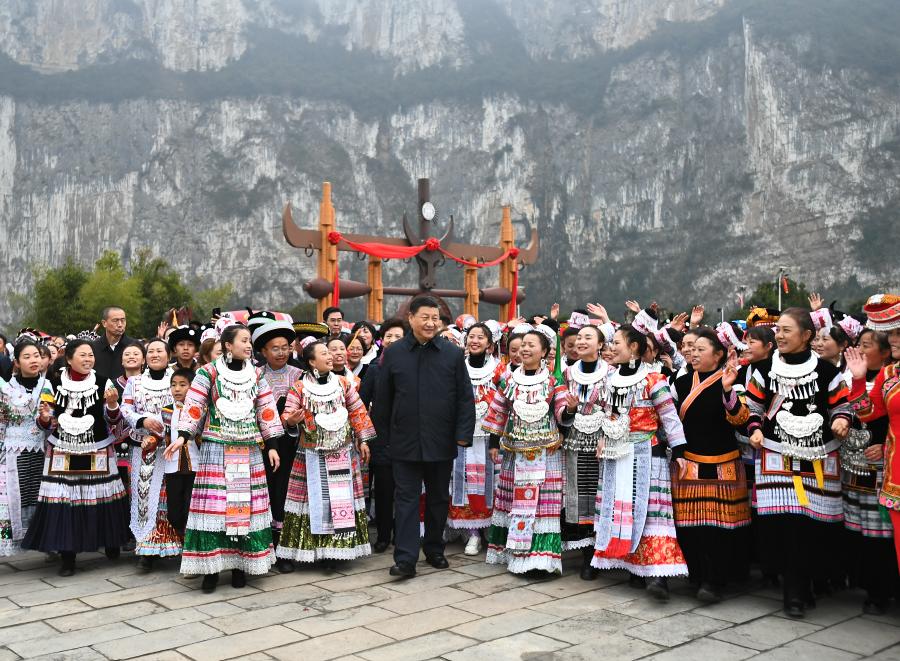
Chinese President Xi Jinping, also general secretary of the Communist Party of China Central Committee and chairman of the Central Military Commission, talks to villagers who are participating in festive activities, and extends his New Year's greetings to people of all ethnic groups across the country, on a public square of Huawu village, Xinren Miao Township of Qianxi County, Bijie, southwest China's Guizhou province, Feb. 3, 2021. Xi on Wednesday inspected southwest China's Guizhou province ahead of the Spring Festival, or the Chinese Lunar New Year. (Xinhua/Xie Huanchi)
[page]
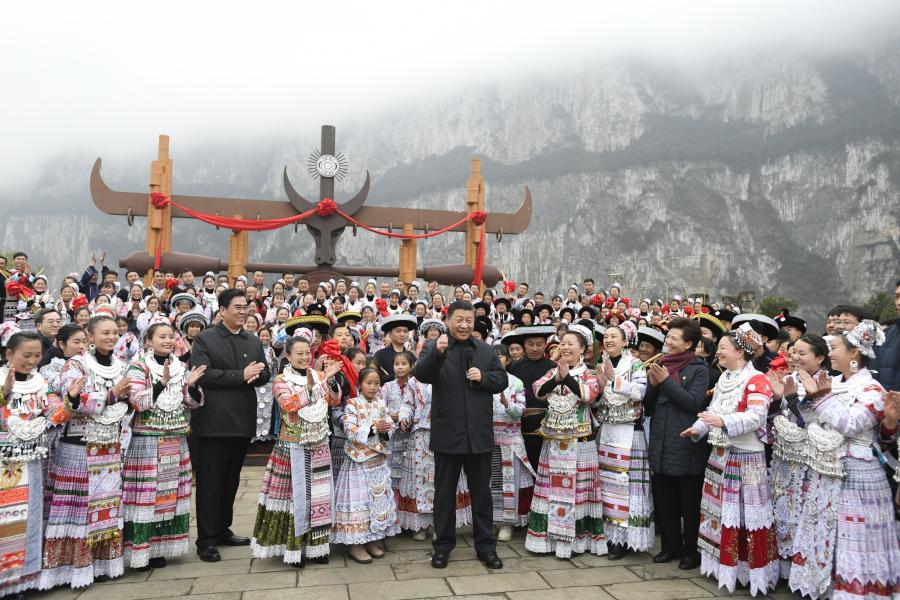
Chinese President Xi Jinping, also general secretary of the Communist Party of China Central Committee and chairman of the Central Military Commission, talks to villagers who are participating in festive activities, and extends his New Year's greetings to people of all ethnic groups across the country, on a public square of Huawu village, Xinren Miao Township of Qianxi County, Bijie, southwest China's Guizhou province, Feb. 3, 2021. Xi on Wednesday inspected southwest China's Guizhou province ahead of the Spring Festival, or the Chinese Lunar New Year. (Xinhua/Li Xueren)
[page]
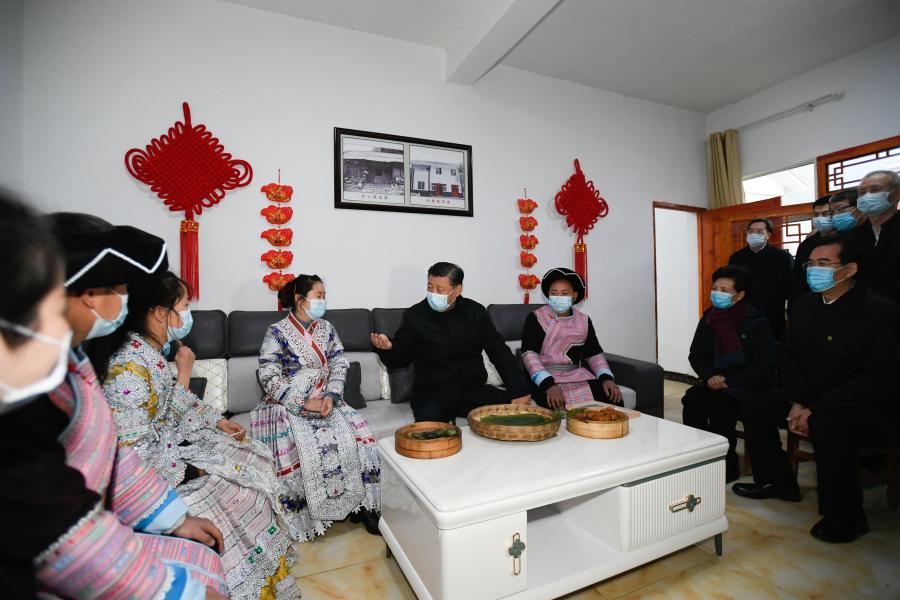
Chinese President Xi Jinping, also general secretary of the Communist Party of China Central Committee and chairman of the Central Military Commission, visits villagers of Huawu village, Xinren Miao Township of Qianxi county, Bijie, southwest China's Guizhou province, Feb. 3, 2021. Xi on Wednesday inspected southwest China's Guizhou Province ahead of the Spring Festival, or the Chinese Lunar New Year. (Xinhua/Li Xueren)
[page]
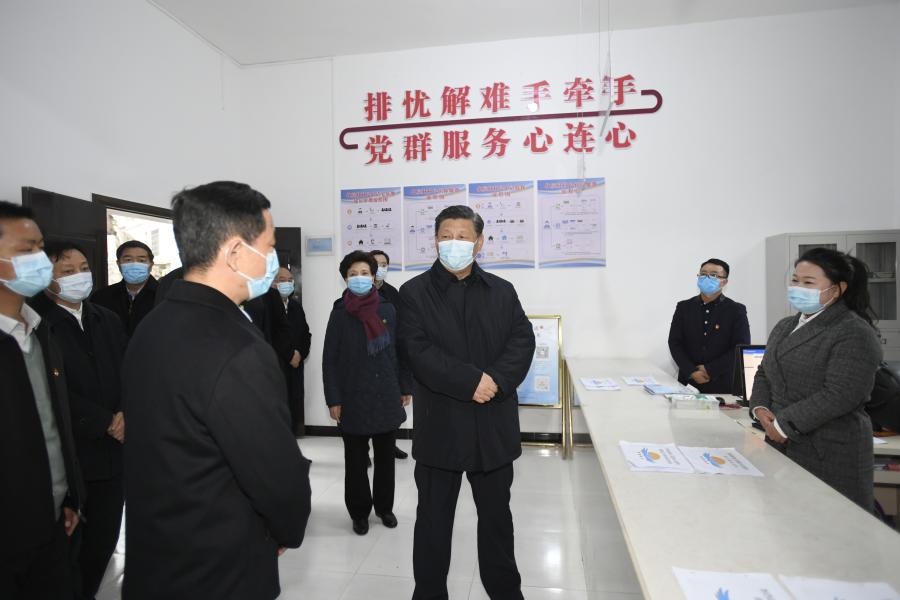
Chinese President Xi Jinping, also general secretary of the Communist Party of China Central Committee and chairman of the Central Military Commission, visits villagers of Huawu village, Xinren Miao Township of Qianxi County, Bijie, southwest China's Guizhou province, Feb. 3, 2021. Xi on Wednesday inspected southwest China's Guizhou province ahead of the Spring Festival, or the Chinese Lunar New Year. (Xinhua/Li Xueren)
[page]
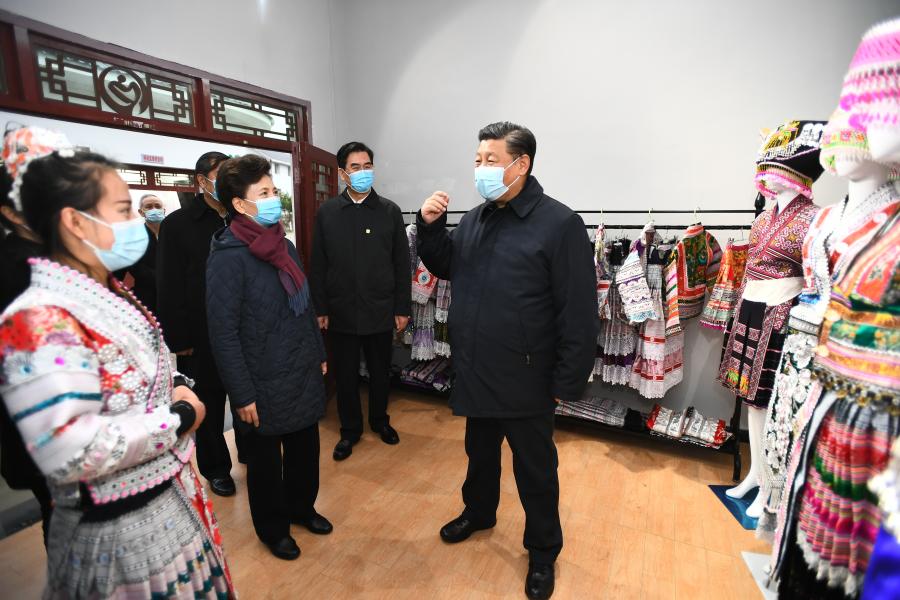
Chinese President Xi Jinping, also general secretary of the Communist Party of China Central Committee and chairman of the Central Military Commission, visits villagers of Huawu village, Xinren Miao Township of Qianxi County, Bijie, southwest China's Guizhou province, Feb. 3, 2021. Xi on Wednesday inspected southwest China's Guizhou province ahead of the Spring Festival, or the Chinese Lunar New Year. (Xinhua/Xie Huanchi)








